maximum age limit for flight attendants
Do airlines hire older flight attendants?
Yes, absolutely!
- U.S. airlines do not have strict upper age limits for flight attendants, making it possible to pursue this career later in life.
- As an older professional, you likely possess a wealth of transferable skills that can benefit you and the airline.
If you still don’t believe airlines don’t hire older candidates, you can check out this article on Yahoo.com!
But there are several things you need to consider before taking the plunge…
- All aspiring flight attendants, regardless of age, must complete comprehensive training programs. And flight attendant roles can be physically demanding. You’ll need to ensure you meet the necessary physical requirements. To find out more about the qualifications, click here.
- Also, being a flight attendant isn’t a relaxing retirement where you can travel on the cheap! Flight attendant schedules can be unpredictable, involving irregular working hours, weekends, and holidays.

FAA age requirements
The FAA does not have any specific requirements that regulate how old a flight attendant can be.
The FAA sets minimum standards for the physical ability of flight attendants, including the ability to perform emergency duties, reach overhead compartments, and lift and move equipment, but it does not specify a specific age requirement.
But airlines may have their own rules.
It is up to each individual airline to determine its own physical and age requirements for flight attendants, within the limits set by the FAA. Some airlines may have more flexible requirements, while others may have more stringent standards.
Global Variations: Age Considerations Among Different Airlines
While the majority of airlines in the Western regions embrace age diversity, some Middle Eastern and Asian carriers tend to favor younger candidates, often below 30 years old. This variance underscores the importance of understanding the specific preferences of different airlines and regions as you embark on your journey.
So, don’t let these challenges bring you down. Embrace your strengths and show the world what you’ve got. With persistence and perseverance, you can overcome these challenges and land that flight attendant job you’ve been dreaming of.
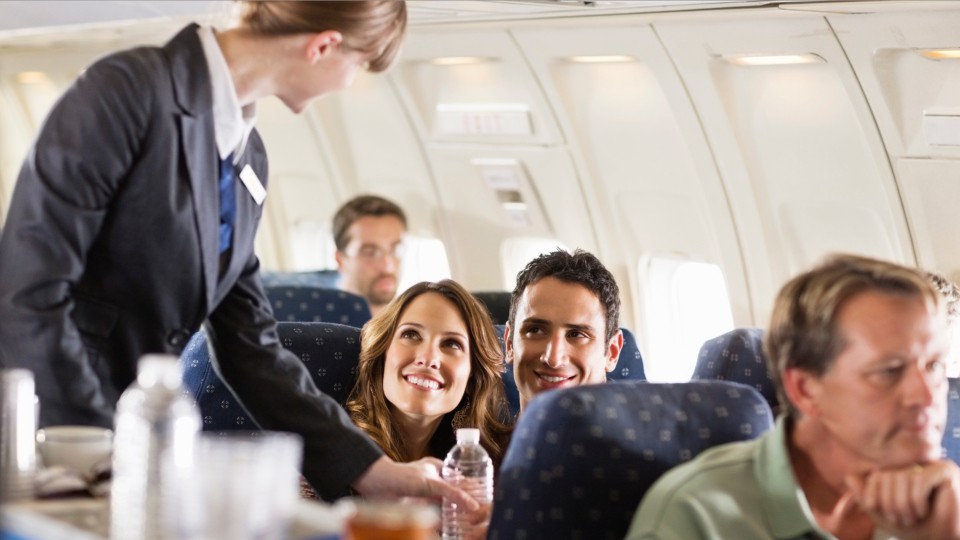


What are recruiters looking for?
They are looking for someone that has customer service experience, has that “can-do” attitude, and a contagious smile, caring, and empathetic.
Someone they know will take great care of our customers.
In addition, they are looking for someone that is fit enough to get through a long day. Which will include being on your feet for long periods of time, able to lift luggage into the upper storage bins, and having enough energy to get through the day.
The airlines are also looking for employees who can be a representative for the companies image.
Sorry guys, if you shave your head or have male pattern baldness, the recruiters are not going to take you!
if you would like to know more about the qualifications, Click Here!
Airline policies may be in flux
Airlines may be making changes to their hiring practices in response to the COVID-19 pandemic, so it is best to check with each airline for their current policies and requirements.
I found that a good source for this information are sites like Reddit or Quora. I have found that many flight attendants post on Quora. Post a question, make it clear you’re interested in becoming a flight attendant. You may be surprised to find a senior flight attendant is answering your question!
Find Out About the Flight Attendant Qualifications
To get a better understanding of what the flight attendant qualifications are, we invite you to explore our article titled “22 flight Attendant Qualifications” This resource will provide you with valuable insights into age, height, physical, hair, nails beards and mustache requirements.



Secure Your Finances
Securing your finances becomes a crucial step in ensuring a smooth and worry-free journey. Here’s how you can take charge of your financial well-being during this transformative phase
The Importance of Adequate Savings
It’s essential to recognize that while your employment may provide you with a steady income, it might not always be sufficient to cover all your financial needs, especially during a career transition. As you focus on making this change, take time to evaluate your financial landscape
Creating a Financial Safety Net
During your career transition, having a financial safety net is a wise strategy. Ensuring you have extra savings in place can provide you with the peace of mind to explore new opportunities without the constant worry about finances. Consider setting aside a reserve that can sustain you if you decide to leave your current job and fully dedicate yourself to your new career pursuit.
Financial experts often recommend having a cushion of savings equivalent to at least six months’ worth of expenses. This safety net can help cover your essential needs during the initial stages of your flight attendant training and career establishment. Building this financial buffer gives you the flexibility to focus on your career transition without undue financial stress.




Evaluating Your Current Budget and Spending Habits
In preparation for your second career as a flight attendant, take a close look at your existing budget and spending patterns. Determine the minimum income required to meet your obligations, such as mortgage payments or family expenses. If you need to generate a certain level of income to maintain your lifestyle, consider discussing your career goals and financial aspirations with your partner, if applicable
Open and honest communication with your partner is key as you navigate this transition. Share your aspirations, career goals, and financial plans with your partner to ensure alignment and mutual support. Evaluating your combined budget and expenses can help both of you make informed decisions and create a financial strategy that accommodates your new path.
Seeking Professional Financial Advice
If you’re unsure about managing your finances during your career transition, consider seeking guidance from a financial advisor. An experienced advisor can help you develop a personalized financial plan, optimize your budget, and make informed decisions to support your second career journey.
By taking proactive steps to secure your finances and create a solid foundation, you’ll be better equipped to focus on your training and embrace the opportunities that a second career as a flight attendant can offer. Remember, financial stability not only empowers you to chase your dreams but also provides the peace of mind needed to excel in your new and fulfilling role.


Comprehensive Training
Unlike some other careers where you may have concerns about technology, flight attendant training covers the technological aspects relevant to your role. From the very beginning of your training, you will receive expert guidance on using advanced tools and systems that are essential for maintaining a safe and enjoyable travel experience for passengers.
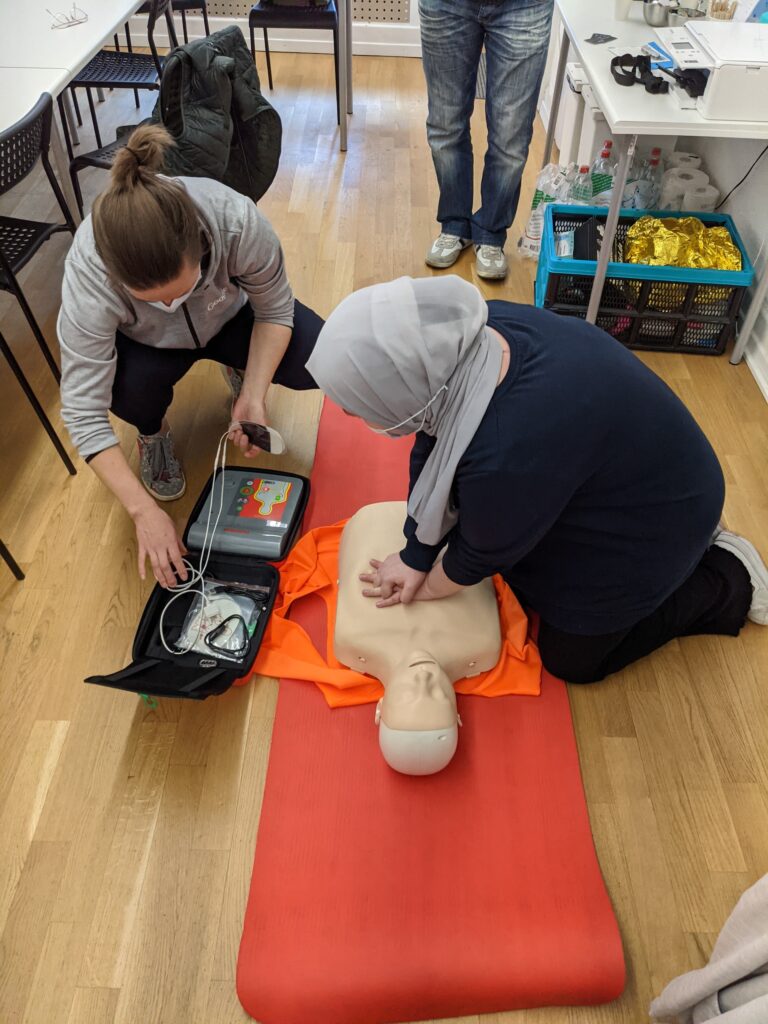

A Glimpse into Your Training
Your flight attendant training will delve into a wide array of crucial topics, all of which incorporate essential technological components. These include, but are not limited to:
- Firefighting Techniques: You’ll be given the knowledge and skills to handle fire emergencies, understanding the operation of fire extinguishers, and protocols for managing onboard fires.
- CPR & First Aid: You’ll learn life-saving techniques, including Cardio-Pulmonary Resuscitation (CPR) and First Aid, preparing you to respond effectively in medical emergencies.
- Defibrillator Usage: You’ll gain knowledge in operating defibrillators, vital devices that can save lives by restoring normal heart rhythms during cardiac incidents.
- Medical Conditions: Familiarize yourself with various medical conditions that passengers might experience during flights, equipping you to provide appropriate assistance and care.
- Emergency Escape Procedures: You’ll master the use of escape slides and evacuation procedures, ensuring passenger safety during emergency situations.
- Security Protocols: Understand advanced security protocols and procedures that contribute to the safety and well-being of both passengers and crew.
- Customer Service Excellence: Utilize equipment and technology to enhance your customer service skills, catering to passengers’ needs and ensuring a comfortable journey.
- Grooming and Image: Learn how technology impacts your professional image and grooming standards, contributing to your overall presence as a flight attendant.
Delve Deeper into Flight Attendant Training
To gain a better understanding of what flight attendant training entails, we invite you to explore our article titled “What Is Flight Attendant Training.” This resource will provide you with valuable insights into the training process and the curriculum.
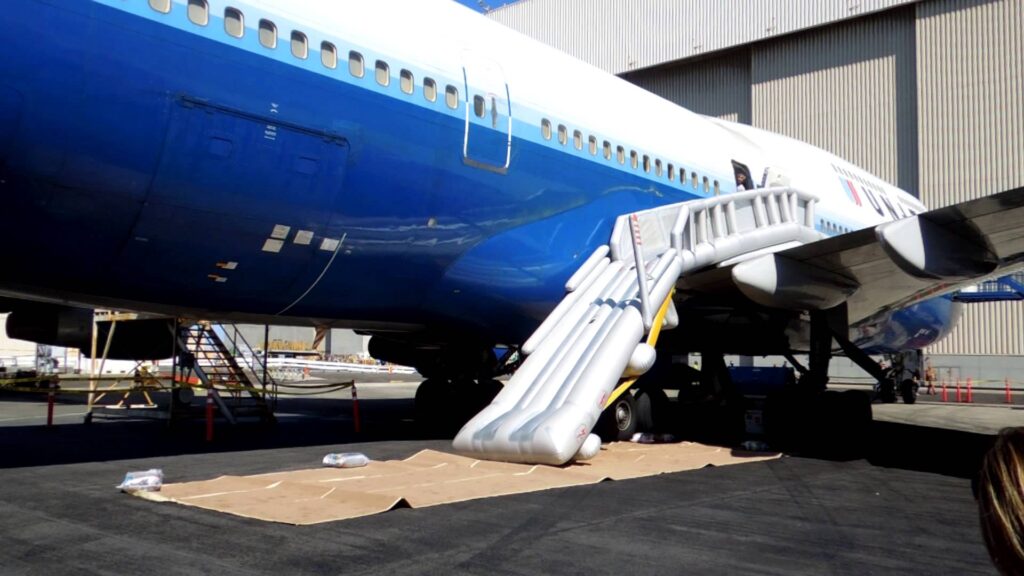

Staying Fit and Healthy
Maintaining physical fitness and robust health is an essential aspect of preparing for the demands of a flight attendant career. For individuals seeking a second career in the skies, adopting a well-rounded fitness routine and making thoughtful lifestyle adjustments are key to ensuring you’re fully equipped for your new career ahead.


Strategies for Success
Crafting a fitness routine that suits your individual needs and goals is essential. Incorporate a mix of cardiovascular exercises, strength training, and flexibility-enhancing activities into your weekly regimen. Cardio workouts like brisk walking, cycling, or swimming improve your endurance, while strength training routines build muscle strength. Flexibility-focused exercises, like yoga or Pilates, enhance your agility and suppleness.
Consult Your Physician
For individuals transitioning from sedentary roles, it’s important to consult your healthcare provider before embarking on a new exercise routine. This step ensures that your fitness endeavors are aligned with your medical history and any pre-existing conditions, minimizing the risk of injury. Your doctor can provide tailored recommendations that prioritize your well-being as you prepare for your second career.
Navigating Fitness for Older Adults
To guide you on your fitness journey, we recommend exploring the insightful resources available from reputable organizations. The National Institute on Aging offers valuable guidance in their article titled “How Older Adults Can Get Started with Exercise.” This resource provides practical tips, exercise suggestions, and safety precautions tailored to the unique needs of older individuals.
Flexibility and Mobility
Enhancing your flexibility is integral to maintaining physical fitness, especially for individuals over 60. We invite you to explore the article “7 Best Stretches for Better Flexibility Over 60” on LiveStrong.com. This resource provides a curated selection of stretches designed to improve your flexibility, reduce muscle tension, and enhance your range of motion.
Lifestyle Adjustments
In addition to exercise, consider making lifestyle adjustments that complement your fitness efforts. Prioritize a balanced and nutritious diet, stay hydrated, get sufficient sleep, and manage stress effectively. These holistic practices contribute to your overall vitality, ensuring you’re well-equipped to excel in your flight attendant role.




The medical exam
A medical exam is a standard part of the flight attendant hiring process, and it is designed to assess the overall health and fitness of the candidate to ensure they can perform the physical demands of the job. There is no need to avoid or look out for anything specific during the medical exam. As an older individual, it is important to approach the medical exam with the same level of preparation and professionalism as any other candidate.
In terms of specific health concerns for older individuals, some common conditions that may impact the ability to perform the physical demands of the job include obesity, joint pain, and respiratory issues. These conditions can be managed with proper treatment and medication.
Because of this, it’s recommended to inform the examining doctor about any pre-existing medical conditions and to be honest and forthcoming about any health concerns you may have. The doctor will take these factors into consideration when evaluating your fitness for the job.
Find Out About the Flight Attendant Qualifications
To get a better understanding of what the flight attendant qualifications are, we invite you to explore our article titled “22 flight Attendant Qualifications” This resource will provide you with valuable insights into age, height, physical, hair, nails beards and mustache requirements.
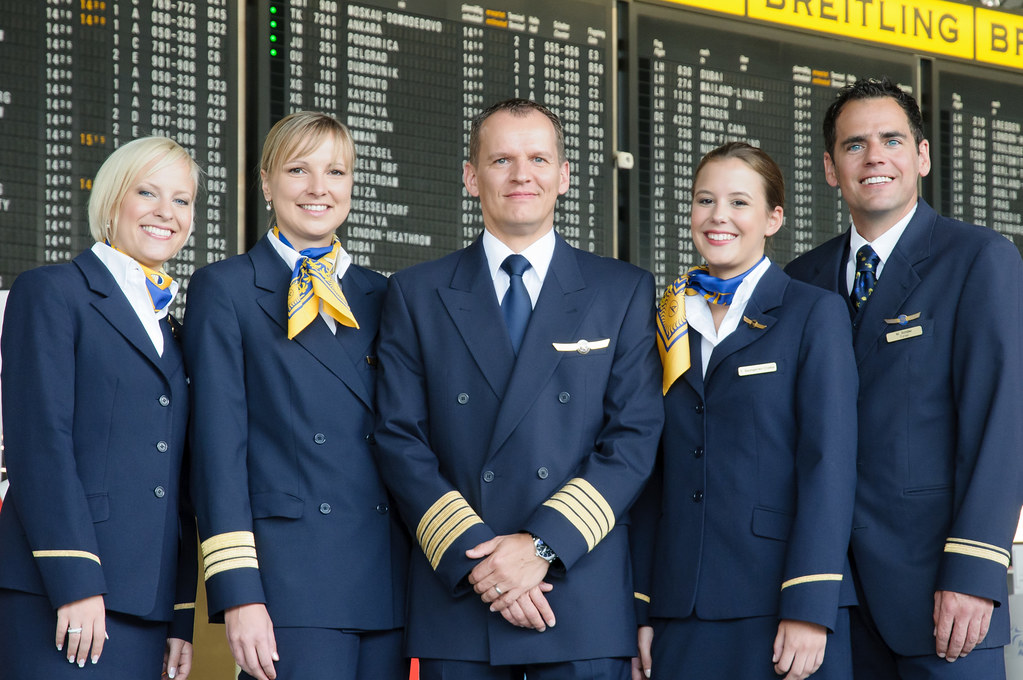

Unveiling the Language Advantage
Mastering additional languages isn’t merely a skill; it’s a strategic advantage that can significantly enhance your career prospects. Airlines are continually expanding their routes and catering to diverse global clientele. By embracing the opportunity to become proficient in languages such as German, French, or Spanish, you’re positioning yourself as a valuable asset who can seamlessly interact with passengers from various backgrounds, fostering a more engaging and personalized travel experience.






Multilingual Flight Attendants
In an era of increased globalization and cultural intermingling, airlines seek professionals who can bridge linguistic gaps and cater to passengers’ unique requirements. Multilingual flight attendants have the capacity to offer assistance, provide information, and ensure passenger comfort in their native languages. This proficiency extends beyond practical communication—it symbolizes a commitment to inclusivity and a dedication to delivering exceptional service.
By enrolling in language courses and becoming fluent in languages like German, French, or Spanish, you position yourself at the front of the line when it comes to recruitment. Your multilingual capabilities inherently demonstrate your dedication to excellence and your eagerness to go above and beyond for passengers. Airlines value candidates who can effortlessly navigate diverse linguistic environments, and your proficiency can make a compelling case for your candidacy.
A Fresh Professional Network
Establishing a new professional network can be a transformative endeavor that not only expands your horizons but also unlocks a wealth of fresh opportunities. Here’s how you can cultivate meaningful relationships within the aviation industry
Joining Dedicated Groups
Joining online communities, such as dedicated Facebook groups centered around flight attendant career pursuits, can provide you with a platform to connect with like-minded individuals. Engage in discussions, seek advice, and glean insights from those who are navigating similar paths. These digital networks offer a valuable space for learning and mutual support.
Finding a mentor is a priceless asset on your journey. Look for someone who is willing to provide honest guidance without any ulterior motives. A sincere mentor can offer valuable insights, share personal experiences, and serve as a source of encouragement as you navigate your way toward a successful second career.





Leverage Your Existing Network
While building a new network might seem daunting, you can leverage your current connections to facilitate a smoother transition. Tap into your established professional network and gradually expand it toward your desired field. Engage with colleagues, acquaintances, and friends who may have ties to the aviation industry. Their introductions can be a bridge that connects your current community to your future aspirations.
Asking your contacts to introduce you to their network can be a powerful strategy for bridging the gap between your current sphere and your desired industry. These introductions create pathways for meaningful conversations and collaborations. By leveraging the strength of your existing relationships, you’re enhancing your visibility and positioning yourself to connect with individuals who can play a pivotal role in your flight attendant journey.
Crafting a Modern Resume
As you embark on the exciting journey of a midlife career change, updating your resume is a pivotal task that can significantly impact your success in the job market. Despite having amassed a wealth of experience over the years, it’s important to present yourself in a contemporary and compelling manner. Here’s how you can tailor your resume to make a lasting impression


A Revamped Resume Approach
Refreshing your resume is a crucial step for anyone seeking new job opportunities. Many individuals over the age of 60 may not have updated their resumes in a decade or more. By revitalizing your resume, you’ll highlight your skills and experiences in a way that resonates with today’s professional landscape, without necessarily emphasizing your age.
Streamlining Your Experience
Your resume doesn’t need to be an exhaustive historical record. Focus on highlighting your most recent accomplishments and the skills you’re acquiring in your new career pursuit. Condense your resume to emphasize the last 10 years of relevant experience, allowing potential employers to recognize the value you bring to their organization.
Addressing Over Qualification
Having decades of experience may sometimes raise concerns of overqualification. Craft a well-crafted cover letter that directly addresses this potential hurdle. Explain why you’re enthusiastic about the specific job you’re applying for and how your extensive background uniquely qualifies you for the role. Address any gaps in your career or clarify why you’re seeking a position that might seem beneath your experience level.
Self Promotion in the Age of Facebook
Get a better understanding of how social networks relate to a flight attendant resume, we invite you to explore our article titled “How To build Up your Resume.” This resource will provide you with valuable insights into how to promote yourself in the age of Facebook.



Navigating the Interviews


Showcase Your Skills
While some employers may overlook resumes from mature candidates, the flight attendant profession offers a refreshing departure from this trend. The interview process is notably personal and face-to-face, enabling you to showcase your exceptional communication and customer service skills in a direct and impactful manner.
Recruiters seek individuals who embody the essence of outstanding customer service – individuals with a genuine “can-do” attitude, an infectious smile, and a compassionate, empathetic nature. These are attributes that cannot be easily gauged by automated algorithms scanning countless resumes. The flight attendant interview process centers on connecting with the real person behind the qualifications.
Tips for older applicants
- Emphasize your experience: Your years of experience in various roles can be an asset in the flight attendant role. Show how your experience has equipped you with skills such as problem-solving, communication, and teamwork that are valuable in the aviation industry.
- Stay fit and healthy: Physical fitness is an important part of the flight attendant role, so it’s important to keep yourself in good shape. Make sure you’re able to perform the required tasks and be ready to demonstrate your fitness for the role.
- Stay current with technology: The aviation industry is constantly changing, so it’s important to stay up-to-date with the latest technology and systems. Take advantage of training opportunities and be prepared to learn new systems and procedures.
- Be a good fit: Airlines are looking for flight attendants who are passionate about customer service and providing a positive travel experience. Emphasize your enthusiasm for the role and show how you would excel in the job.
- Be confident: Don’t let your age hold you back. Be confident in your abilities and show that you have what it takes to be a successful flight attendant.
- Show your adaptability: Airlines want to know that you can adapt to change and handle unexpected situations. Highlight examples of how you’ve handled challenging situations in the past and how you can bring your adaptability to the flight attendant role.
- Network: Networking can be a powerful tool in the job search process. Reach out to people in the industry and attend events to learn more about the industry and make connections that could help you land your dream job.
By following these tips, older workers can increase their chances of securing a position as a flight attendant. And with the right approach, you can achieve your goal of working in the aviation industry and fulfill your passion for customer service.


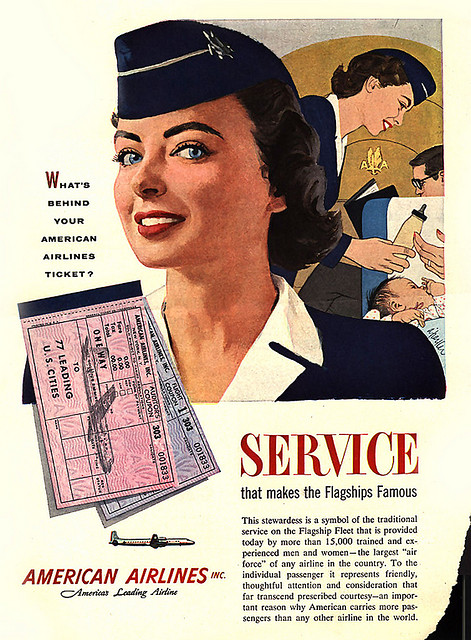

Delve Deeper into the Flight Attendant Hiring Process
For those seeking insight into the flight attendant hiring process, we invite you to explore our comprehensive article titled “Flight Attendant Hiring Process.” This resource delves into crucial aspects such as the group discussion (group interview), the personal interview, flight attendant interview questions, and strategies to craft standout responses. Discover valuable insights to help you shine brightly and distinguish yourself amidst the competition.
Navigating Age Discussions
As you navigate the interview process for your second career as a flight attendant, it’s prudent to exercise caution when it comes to discussing age-related topics. Here are some insightful strategies to ensure that age remains a non-issue during your interviews
Avoid Age References
Whether your interviewer is significantly younger or of a similar age, it’s essential to approach the conversation with sensitivity. Steering clear of age-related comments maintains a neutral and professional atmosphere. Avoid making any comments about their age, even in passing.
Remember that your qualifications and your passion for the flight attendant role are what truly shine. By avoiding age-related discussions and focusing on your capabilities, you’re positioning yourself as a compelling candidate who is ready to embrace the challenges and rewards of a dynamic second career


Sell Yourself
You will want to sell yourself
You’ll need to do research on the company you’re applying to. Each company is different, see if you can determine what some of their key qualities they are looking for. Or put another way, what is their crew member ‘culture’ like? What are their values? What kind of flight attendant are they looking for?
- First place to look is the job posting
- Then look on sites like Quora, Reddit or Facebook for posts from people who recently went through an interview.
- Post a question. There are many Flight attendants that post on these sites. You may get lucky and have a senior Flight Attendant answering your question!
There are some key qualities that all airlines look for in a Flight Attendant, such as:
- Positive attitude
- Good customer service skills
- The ability to work under pressure
- Being flexible / being able to think on your feet
- And a good level of physical fitness. You’re fit enough to be on your feet for 10+ hours and still have some energy left.




Now sell yourself
How do you sell yourself?
It’s not unusual for a salesman to position their product or service as a solution to a problem.
So the airline has a problem, you’re the solution.
Now you have a good idea of what the airline is looking for, make sure you highlight those qualities in your resume and in the interview.
Do your research, make sure you have an idea of the possible questions that you may be asked. Click here for some questions and answers!
Use your answers as a way to promote your qualities that would make you a great flight attendant.
- Take a look at the job description and match your qualities with what the company is looking for.
- When answering, be specific when talking about your qualities. Give examples of how you used them and how they helped you
- Use positive words such as ‘reliable’, ‘hardworking’, ‘resourceful’, etc…
And the interview is a great place to show that you understand the role of a Flight Attendant and that you’re up for the challenge.
What you should not do!
- DON’T use cliches! DO NOT SAY “I’m a people person”!
- DO NOT LIE! The company will hire people to do research on you. You will be caught and you won’t get the job!
Are You Ready to Become a Flight Attendant?
Still wondering how to become a flight attendant?
Then check out our post: How To Become A Flight Attendant – The Ultimate Guide!
Or you can check out the next post in the series, How much do flight attendants make? Where we let you know what the job outlook is, calculate the first year’s pay and go through different ways you can increase your pay and give you an idea of what your benefits would be.